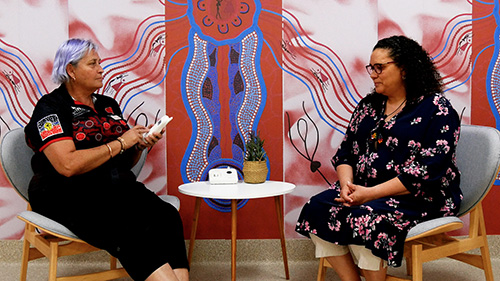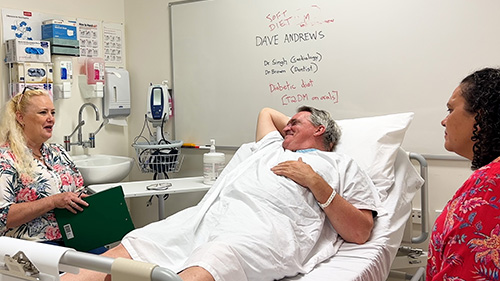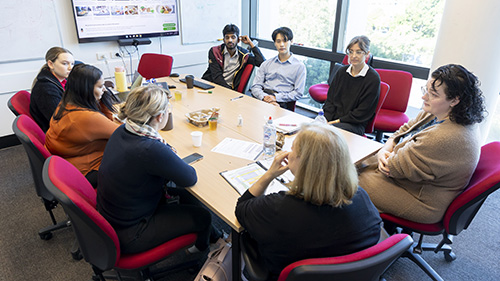Increasingly, health and community service professionals work in interprofessional teams
This trend will continue as systems change to cope with the increasing complexity and chronicity of health and social problems, as well as recognition of the importance of the social determinants of health and the challenge of the spiralling costs of health care and community services.
There is strong evidence that adverse health and wellbeing outcomes are often linked to the failure of effective teamwork.These problems can be overcome when professionals adopt a model of collaborative interprofessional practice, which we define as:
Health and community service professionals working together, using complementary knowledge and skills, to provide care to patients, clients and communities, based on trust, respect and an understanding of each others’ expertise.
Rogers, G. D., Thistlethwaite, J. E., Anderson, E. S., Abrandt Dahlgren, M., Grymonpre, R. E., Moran, M., & Samarasekera, D. D. (2017). International consensus statement on the assessment of interprofessional learning outcomes. Medical teacher, 39(4), 347–359. https://doi.org/10.1080/0142159X.2017.1270441
Griffith Health has responded to this challenge through the formation of the Griffith Health Framework for Interprofessional Learning. The Framework has the bold goal of ensuring that all health professional graduates from Griffith University will be fully competent for interprofessional collaborative practice (IPCP). This will be achieved through a 3-Phase Pedagogy program of interprofessional learning, which the (UK) Centre for the Advancement of Interprofessional Education defines as occurring: when two or more professions learn with, from and about each other to improve collaboration and the quality of care.
3-Phase Pedagogy
The three-phase approach to interprofessional learning within Griffith Health programs utilises appropriately aligned and scaffolded interprofessional learning activities embedded across the whole curriculum, commencing with Phase I early in each program and culminating in Phase III as students transition to practice.
Phase I: Health Professions Literacy
Phase I activities are delivered early in Health programs and are aimed at introducing health professions literacy.
Ideally this is undertaken through an interprofessional collaborative activity and often takes the form of interactive large group sessions, supported by video resources.
The activity may be delivered in a face-to-face setting or replicated online.
Phase II: Simulated IPCP Experience
Phase II activities are delivered mid-program and are aimed at providing students with a realistic experience of working in an interprofessional team in a controlled and safe environment.
Interprofessional student teams work together on the assessment and management of (trained) simulated patients and clients (or in-depth scenarios) enabling them to experience a range of team dynamics and interactions.
Phase III: Real patient or client care IPCP experience
Phase III activities are delivered towards the end of Health professional programs and are aimed at providing students with a real life, work-integrated, learning experience of practice in an interprofessional team, under supervision. Ideally, this involves working with senior students from other health professions in the direct assessment and provision of care to patients and clients.
Contact us
Program lead for Interprofessional Learning
Interprofessional Learning Coordinator
Interprofessional Learning Administration Officer


